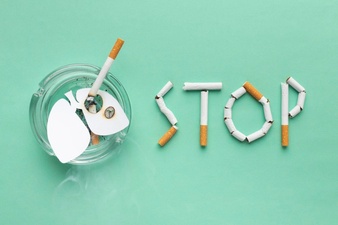It’s pretty much universally accepted that spending a lot of time gawking at other people’s social media profiles could leave us feeling like we’re not cool, rich or glamorous enough.
And even though we have some idea that the posts on our feeds are curated to mostly show the bits of people’s lives that leave little to be desired, it isn’t always enough to stop the green monster from taking over.
But did you know that social media might also be making you feel like you’re not well enough, too? A recent study published in the Heliyon journal conducted by Bridget Dibb, PhD of the University of Surrey suggests a possible link between spending time comparing lives with people on Facebook and feeling ill.
The study
Dr. Dibb sought to investigate how spending time on social media and as a result, engaging in social comparisons, affects people. In this study, comparisons are categorised as either “upward” or “downward”. Upward comparison happens when people compare themselves to others who are thought to be better off than them and downward comparison describes the opposite.
The type of comparison that people engage in on social media is usually the upward type, as people tend to highlight the best parts of their lives online.
It’s often thought that upward comparison makes people feel less confident in themselves and that downward comparison has the opposite effect, but past research shows that things aren’t as clear-cut. Instead, it’s been shown that the effects of comparisons depend on the comparers’ interpretations of them.
Dr. Dibb gathered 165 participants for this study from Facebook, aged 18 to 70, with a mean age of 31.4, two-thirds of which were female. 80 per cent identified their ethnicity as European, whereas 9.7 per cent identified as African and 5.5 per cent as Asian. 3.3 per cent reported their ethnicity as mixed, whereas 12 per cent did not give that information.
The participants filled out a questionnaire that was used to measure Facebook use and social comparison on Facebook in addition to other factors such as depression, anxiety, life satisfaction and physical health. The mean self-esteem score of this group was found to be higher than average.
Results
The results showed that the participants were more likely to agree with comparison statements that were interpreted positively, as opposed to those interpreted negatively.
Positively interpreted upward comparison statements attracted the most agreement from participants, followed by positively interpreted downward comparisons. Negatively interpreted upward comparisons attracted less agreement from participants, but it was the negatively interpreted downward comparisons that garnered the least.
Surprisingly, when examining the relationship between comparison and physical symptoms, Dr. Dibb found that out of all the comparison types, only positively interpreted upward comparison was associated with experiencing more physical symptoms. The demographic and psychosocial differences between the participants were taken into account when coming to this conclusion.
This means that the participants who had positive feelings after engaging in upward comparison on Facebook were more likely to be aware of their physical symptoms. Additionally, Facebook use itself was linked to having more physical symptoms, as participants who felt that Facebook was an important part of their lives were likelier to report having more symptoms.
Dr. Dibb says that it’s unclear whether social comparison on Facebook causes physical symptoms in participants or if it’s the case that people who are already ill are more likely to use Facebook. She says that more research is needed to determine any causal link.
These findings are interesting, nevertheless. So have you ever felt a bit “off” after rejoicing at a Facebook friend’s news? Share your experiences in the comments!
Source:https://www.sciencedaily.com/releases/2019/01/190109090908.htm | By: Tesneem Ayoub






Leave A Comment
You must be logged in to post a comment.